I’ve always preferred games that mix luck with skill in a way that gives both nearly the same importance. Because of this, I love to play cribbage, but I barely know the rules of chess. Cribbage—like fishing—is a game of chance, but much like the guy who taught us to pasteurize our milk advised us, chance tends to favor the prepared mind. If we are skilled at cribbage, we’ll beat a lesser player more times than not, but we won’t win if we consistently get cards that smell like the inside of a guide’s waders in October. So we play the cards we’re dealt the best we can and start anew with the next hand. Somedays, we dance between the raindrops, dry as a cactus. On others, the ravens kill every ladybug in our house while we spill salt, break mirrors, and pound nails after sundown. And even though I’m blessed to be fishing on Spring Creek today, it is one of those other days.
Bob says the fishing has slowed—the fish have “lockjaw,” as he puts it—so we return to his car, eat our sandwiches, and regroup. As long as it’s safely digestible, anything and everything tastes like a $25 sandwich from Katz’s Delicatessen when you tuck it between two pieces of bread, wrap it in aluminum foil, pack it in a small cooler with ice, drinks, and cookies, and eat it beside a river with a friend. When he was dying of cancer, Warren Zevon told David Letterman we should enjoy every sandwich. But out here, surrounded by mountains and magpies, neither Bob nor I need the excitable boy to remind us.
Bob tells me about Nick’s last visit to Spring Creek and how Nick missed a large trout that rose to his black cricket while he was distracted, telling a story about fishing in the Keys. Another hint that should alert me to the significance of this day. I ask Bob to describe the fly pattern, and then I search my box for something similar. Chance tends to favor the prepared fly, you know. But being favored doesn’t guarantee a win. Harry Truman beat Thomas Dewey in 1948, the US hockey team beat the Soviets in 1980, Buster Douglas beat Mike Tyson in 1990, and though you won’t see it on the front page of the New York Times, Spring Creek will beat me in 2019, even though I—like those more renowned losers—consider myself prepared and favored to win.
But how, really, does a river beat us? I tell people—as, perhaps, you do too—that I don’t need to catch fish to have a good time fishing. “A bad day of fishing beats a good day of working,” I say when I’m comfortable casting clichés. Again, what exactly is a bad day of fishing? I once found myself ass-deep in quicksand about an hour before dusk with no bars on my cell phone. I didn’t think I would die, but I wasn’t sure I wouldn’t. Assuredly, that had the potential for a bad day of fishing. But if we measure these things by the enthusiasm with which we later tell the story, it turned out to be one of my best.
So, here I am, thirteen hundred miles from home, casting a black cricket tight against one of Spring Creek’s countless undercut bends, nearly oblivious to the history surrounding me. One of my casts attracts the attention of a nice fish, but it’s the “Excuse me, could you tell me what time it is?” sort of attention, not the “Hey sexy, do you come here often?” type I’m chasing. The wind has whipped up small whitecaps on the water, obscuring my view of the bottom of the creek, which is probably a good thing for my sanity.
When the wind did not ruffle the surface of the river too harshly—giving it a slate, opaque cover—the water was so translucent that you could see distinctly to the bottom of the deepest pools. What I could see in some of them, five to eight feet down, wavering like living shadows near the bottom, sent shock waves through me.
More Like This
I won’t catch a fish here today, and the truth is, I won’t feel the intense magic of this place until I’ve left it. On my long drive back to Michigan, the audio version of Spring Creek will bake a cake layered with sadness and joy in the hollow oven of my stomach. Like Bob Seeger running against the wind, I’ll find myself wishing I didn’t know then what I don’t know now. I’ll reread Spring Creek many times back in Michigan, hoping to understand this day better. On cold winter nights, I’ll see the lightning, feel the wind, and hear the creek cut away a little more soil from underneath these mysterious oxbow bends. And it will all make me desperately want to return and find the truth of this day.
Earnest Hemingway said every writer should strive to write one true sentence, and Harlan Howard famously described good country music as three chords and the truth. But what is this thing we call “truth?” By its definition, fiction is a lie, though some of the greatest truths ever told are accounts of things that never happened. Nick Lyons fished Spring Creek over several summers. That’s as true as a mother’s love. But the truth in his writing has little to do with the factual accounts of his time at Farago, Second Bend, or the Nursery. The truth is what he thought and felt in those places. We readers will tolerate—perhaps even encourage—a writer who stretches the size or number of fish they catch. If they want us to believe something deeper and more spiritual, they better be like Nick:
I would as well be here, beside this pool, right now, as anywhere in the universe. I have thought about such a place without knowing it existed. At times I have wished life as simple as this riverbank—the world a logical structure of bend, current, riffle, and pool, the drama already unfolding on the glassy surface, and me, here on the bank, my ass wet, armed with some simple lovely balanced tools and some knowledge, prepared to become part of it for a few moments.
I want to become part of this place again, if only for a few moments.
Editor's note: "Spring Creek" is an excerpt from the upcoming book, A Cast Away in Montana, from longtime and frequent Hatch Magazine contributor Tim Schulz. The book will be released on May 7, 2024 and is now available for pre-order through Amazon. To pre-order a copy signed by Tim, as well as renowned painter Bob White, whose artwork graces A Cast Away in Montana, visit Bob White Studio.






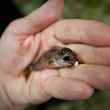
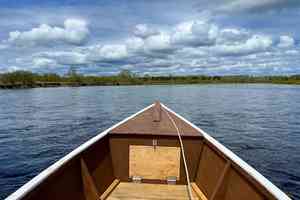


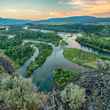
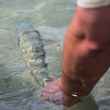
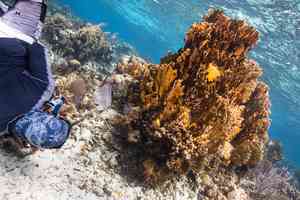



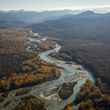



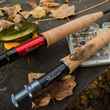




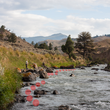
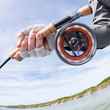
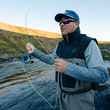
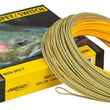
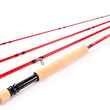
Comments
Todd Tanner replied on Permalink
In an age when crappy YouTube videos and questionable "how-to" articles make up the vast majority of modern fly fishing content, it's a breath of fresh air to read something this heart-felt and this beautifully written. Thank you.
Eddie Sanchez replied on Permalink
An old-school, pensive fishing essay, with modern references.... Loved it so much this fellow Michigander is going to do two things: pre-order a copy of Mr. Schulz's book, and dig out my dog-eared copy of Spring Creek by Nick Lyons. Thanks for the great read.
Anonymous replied on Permalink
Tough to find a cribbage player and a fly fisherman in one person these days. Never got the fabled 29 but I’m still hopeful. Thanks for sharing. Muggins.
PETER FARRELL replied on Permalink
enjoyed a great essay. Read Spring Creek when it was published and always enjoyed Nick's writing and great encouragements to other writers. Have a special place for the Catskills in my fishing journey. Thanks for writing about yours.
Pages